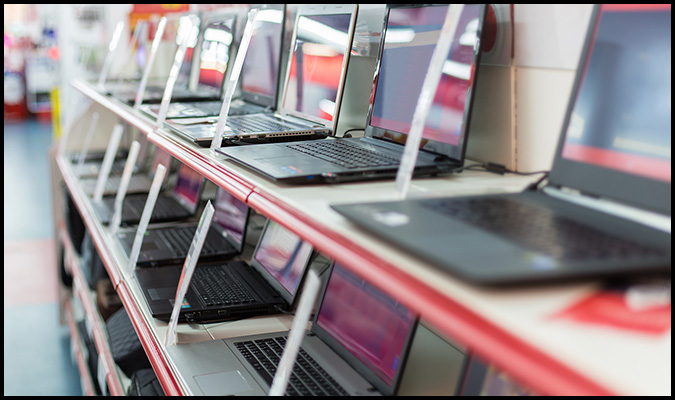When looking for your first laptop, you’ll encounter a puddle of terms. Put on your waders and go on in. This primer will help you get through the spec lists so you have some direction when you start shopping.
A few notes: when you see major brand laptops selling for less than £400, you’ve probably gathered that you’ll be making compromises somewhere, so figure out your priorities – will you mostly use it for schoolwork or watching movies, for example? The things you don’t want to skimp on are laptop memory (RAM) or storage (HD or SSD).
When trying different models, don’t just look at the screen or the specs. The design, feel, and performance of touchpads and keyboards can really make the difference between an enjoyable experience and an irritating one. Weight is a significant factor as well; when carrying alaptop around, even a few ounces can make themselves felt on your shoulder. For these reasons, first-timers especially should start in a store and purchase online if they find what they like at a good price.
Processor: The brains behind the operation. Among the most common names you’ll see in budget specs are Intel, Rockchip, and AMD; moving up the price ladder, you’ll see mostly Intel, with the Core i5 common in the mid-range and the i7 at the higher end.
HDD or SSD: Or hard disk drive or solid-state drive. Holds and runs your operating system and applications and stores your files. Some budget laptops still come with standard hard drives, but SSDs – which are superior in speed, longevity, and battery life – are becoming quite common. In short, you want the SSD; the fact that an SSD upgrade has become a cure for ailing laptops says something about them, so if you can, just buy a laptop that comes with one.
RAM: Stands for random access memory, and it is different from storage. Think of a computer as a desk and of browser windows, documents, and open applications as pens, papers, and such. RAM is you, looking for a pen, looking for that note you put, well, somewhere. The tidier your desktop and the less you’re doing at once, the easier it is to find things. So, opening a lot of browser tabs while working in Microsoft Word, Skyping, and running Spotify uses a lot of laptop memory. Budget laptops usually come with 2GB or 4GB. You can get by on the latter, but 8GB will give you enough to do all you want, even play most games.
GHz: Processor or RAM speed as measured in gigahertz. Honestly, for the average (ie not super-gamer) laptop buyer, slight differences in these speeds are not important considerations as they will not noticeably affect the performance.
Now when you start shopping, you can face a string like “Intel Quad Core 2GB 32GB SSD” without blinking.

